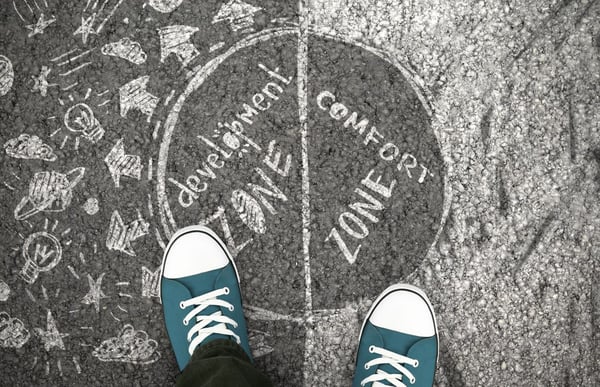A pervasive pattern has quietly invaded our culture—people-pleasing. Compliance and pleasing are woven into the very fabric of etiquette and social norms. Children quickly discover that pleasing their caregivers and keeping them happy pays off and prevents unpleasant consequences.
Children need to be loved and cared for to survive; their basic needs drive them to acquiesce in thousands of ways. Adults are bigger, faster, smarter, and stronger, so it’s often futile to go against the grain. This behavior is natural for children dependent on adults, yet, when this habit persists into adulthood, it holds the person ransom.
Estimated reading time: 6 minutes
 Heartmanity partners with outstanding companies and products we wholeheartedly recommend so this post may contain affiliate links. As an Amazon Associate, I earn from qualifying purchases at NO extra cost to you. You can read our full disclosure here. Thank you for supporting Heartmanity's mission and helping us provide quality content!
Heartmanity partners with outstanding companies and products we wholeheartedly recommend so this post may contain affiliate links. As an Amazon Associate, I earn from qualifying purchases at NO extra cost to you. You can read our full disclosure here. Thank you for supporting Heartmanity's mission and helping us provide quality content!
BLOG CONTENTS
Your Brain, People-Pleasing, and the Need to Belong
Which is Kinder: Pleasing or Being Authentic?
Start with a Decision to Be Yourself
Be Persistent: The Journey of Self-Discovery to Inner Peace
Be Curious About Yourself
Questions for Self-Inquiry and Self-Discovery
Mindfulness Practices to Leave the Cocoon of Pleasing
Adults who are people-pleasers are unable to speak their minds, put their own priorities first, or even be comfortable in their own skin. It may feel safe, but people-pleasing comes with a very high cost.
Compliance profoundly depletes the quality of friendships, marriages, and lives. It’s an emotional virus that suffocates honesty, blurs boundaries, and makes true happiness near impossible.
If the cost is so high, why do so many people comply and continue to please others over themselves?
Your Brain, People-Pleasing, and the Need to Belong
If you’ve ever experienced hurt, bullying, a broken heart, or rejection, it’s easy to understand why children and adults alike choose to go along with what others want. We want people to like us. We all desire to be accepted and to belong—these are human needs.
But as adults, we can take care of ourselves. We’re no longer helpless like we were when we were children. And since we’re now independent, why do we care so much what others think?
Why are we willing to give up our power and individuality to be liked and accepted?
The primary reason we give up ourselves is a fear of negative consequences that can have a significant impact on our lives. Some possible avoidances are:
- Hurting someone’s feelings.
- Offending a spouse or friend.
- Receiving an angry reaction from others because you disagree.
- Being on the receiving end of a person’s displeasure or rejection.
- Upsetting your boss, i.e., because you decline working late.
- A co-worker giving you a cold shoulder because you focus on your work instead of engaging in chit-chat with them.
These are just a few possible outcomes that people avoid; you may have others.
From the Comfort Zone to the Growth Zone
Here's the thing though: you won't know how people will respond unless you test the waters. Leaving your comfort zone activates new emotional fitness muscles so you can grow and become healthier.
Yes, new behaviors can be challenging, even a little scary. Personal growth requires you to leave your comfort zone, but people-pleasers are often pleasantly surprised at how welcoming others respond when they are more real.
And in the few situations that get tense, you will build skills to navigate them. The more you commit to and practice being yourself, the more confident you become.
A must-read book for people-pleasers is Don’t Be Nice, Be Real. Reading the principles in this book allowed me to breathe freely for the first time in my life. I had always seen pleasing and being nice as loving and genuine, a foundation of my core values.
Until I digested the author’s message, I sacrificed my own well-being to be nice without even realizing it. His words felt like a liberator, and I realized that to be genuine AND kind, I also needed to be authentic. Being only “nice” was a shallow way of giving cloaking insecurity.
True kindness requires us to be kind to ourselves.
You can be kind, please others, and be authentically you.
Add Self-Compassion for Greater Courage!
Maybe you’re caught in the grips of people-pleasing, and you long for the freedom to be yourself. If so, you’re possibly judging yourself and feeling powerless.
To cultivate greater self-compassion, let’s unpack the psychology of pleasing others. Understanding how our brains are wired (it truly is all in your head!) helps alleviate, or at least, quiet the judgment that inhibits self-acceptance.
Did you know that research shows that emotional pain uses the same brain circuitry as physical pain?
No matter how confident you might be, exclusion and rejection hurt. When you feel rejected, receptors in your brain light up.
Why?
Because your brain’s first responsibility is to keep you safe. And for humans, there is safety in numbers. This premise helps explain why the drive to be accepted, liked, and avoid conflict is so strong.
Inclusion equals safety.
Published in Current Directions in Psychological Science, Naomi Eisenberger offers a correlation:
“Early humans needed social bonds to survive things like acquiring food, eluding predators, and nursing offspring are all easier done in partnership with others. Maybe over time, this social alert system piggybacked onto the physical pain system so people could recognize social distress and quickly correct it…. In other words, to the extent that being separated from a caregiver or from the social group is detrimental to survival, feeling ‘hurt’ by this separation may have been an adaptive way to prevent it.”
Pleasing others is an adaptive measure to achieve safety.
It makes sense, doesn’t it?
And it’s a clever strategy to be liked and to belong, while also appeasing our threat system.
The catch?
Pleasing others at our own expense takes its toll. This behavioral pattern eventually leads to:
- Unfulfilled dreams.
- Tolerating discordant or even abusive relationships.
- Postponing happiness.
- Collecting a truckload of personal resentment.
- Feeling alone and isolated.
Related reading: “Why Being a People Pleaser Damages Relationships—and What to Do About It!”
Which Is Kinder: Pleasing or Being Authentic?
For many, people-pleasing has become a way of life. They’ve convinced themselves that they are kind when they go along with what their spouses or good friends want. This compliance is especially prevalent in easy-going people; they justify their behavior since they don’t have a preference or can go with the flow easily.
What about your preferences and what you want? Just because pleasing others has become such a well-oiled habit, doesn't mean it's kind?
And are we kind when we go along with others, or do we deny them the opportunity to please us? Don’t those who care for us also want us to be happy and get our needs met?
Of course, they do.
For instance, my husband used to agree to run errands for me but then when they interfered with his work schedule or became inconvenient or he got stressed, I got guff later. I had no intention of him agreeing unless it was convenient and worked for him, but he was trying to please me instead of thinking through whether it worked for him or not.
Or take my own people-pleasing ex-habit for another example: my high adaptability often fueled me to go along with others.
Just last night, my son was preparing shish-kebabs, which are not my favorite. So, I requested my vegetables and meat to be grilled separately (pineapple flavor spilling over onto bobs is distasteful to me). In the past, I would have never asked for this minor change because it required extra work.
Pleasing others was my preference; however, when I was really honest with myself, I discovered that I wasn’t as happy as I could be. When I stopped people-pleasing and opened myself up to others’ more attentive love and greater support, life was much sweeter.

Pleasing Others at Our Own Expense Diminishes True Connection
Putting your true thoughts, feelings, and preferences into the equation of a relationship creates a more authentic connection and therefore, more ease, closeness and happiness between the people involved.
And even if it’s not a big deal to eat shish-kebabs when I’m not crazy about the combination, it is kinder to me. Now, my family knows what makes me happy, too!
You can never go wrong being authentically honest with yourself and others. Learning how to be kind by developing emotional intelligence is the pathway to freedom of people pleasing.
A more blatant example of pleasing tendencies is when you tolerate disrespect as a way of keeping the peace and then justify your actions by priding yourself in forbearance or patience. (One of my favorite excuses that perpetuated my people-pleasing.)
You may even feel a tinge of superiority because you’re so tolerant and forgiving.
But is it kind to allow another person to be disrespectful and be unwilling to require them to be respectful, to be their best self?
Most likely, these feelings lessen authentic connection in a relationship.
The primary difference between people-pleasing and kindness is that kindness does not require self-sacrifice.
There is no reason to sacrifice oneself to make others happy. And if you are, it’s not kindness; it’s pleasing. Being authentic is kinder than pleasing!
And being true to yourself leads to inner peace.
Kindness is only genuine when we are also kind to ourselves.
So how does one move from pleasing to authenticity? How do you convince your threat system that it’s not only safe to be yourself, voice your truth, and pursue your interests and dreams, but that it’s beneficial to do so?

Start with a Decision to Be Yourself
Becoming your authentic self is a journey of a thousand steps, some small, some big. And it all begins with the decision—and courage—to be yourself, to share who you are inside. Think of it this way: if there is no one else like you in the whole world, then if you’re not yourself, the rest of us are missing out!
It is often incredibly lonely when you don’t show your true self to others. To not be known is not to experience real love and connection.
As a young adult, I remember thinking, “If they reject me when I’m something I’m not, it won’t matter because it’s not really me.” I thought I pulled one over on people until I felt hollow and depressed inside and didn’t know why. It was just too lonely.
I also remember how much joy I derived from making others happy. It was so easy just to go along—until it wasn’t. When I had given and given to everyone but myself, soon, all I had left was the pride of being a “kind person” and the close companion of exhaustion. Pleasing at the expense of ourselves isn’t sustainable.
When you are authentic, you’re the same on the outside as you are on the inside. It’s tension-free with abundant energy for life. Being authentic enriches everyone around you.
Being open with others also gives you a sense of being seen that is gratifying while deepening your sense of belonging. Your uniqueness contributes to a family, to a team, to an organization in an irreplaceable way. And when you are real, it also gives others permission to be themselves. So, everyone wins.
It’s not about being nice; it’s about being true to yourself and being authentic with others. And it turns out that being authentic isn’t as easy as it seems due to our biological and psychological need to be accepted and liked.
However, there is a price for handing over our power to another person no matter how we may justify our actions.
As the late Debbie Ford wrote:
“The moment we try to please another and abandon our own truth for theirs, we essentially hand our power to them, violate our own integrity, cut ourselves off from our inner wisdom, and at least for a while, disconnect from our ability to love and nurture ourselves.”
Related reading: “How Being Compliant and a People Pleaser Destroys Marriages.”
Be Persistent: The Journey of Self-Discovery to Inner Peace
Are you ready to be real? Are you prepared to embark on the journey of self-realization and self-love?
To awaken from the sleep of people-pleasing, begin with self-discovery. The path is filled with challenges, curves, and hills. The journey back to your heart and authentic self is also filled with excitement, peace, and fulfillment.
The journey of self-discovery is a lifelong process, so be gentle with yourself.
The most important thing is that you begin.
Forge ahead to uncover the riches that have been buried under compromises and silent suffering. Just begin. Be gentle but be persistent!
Take off your mask and be real.
Be Curious About Yourself
Intelligent self-inquiry helps to stimulate the frontal cortex of our brains. This logical part of our brain loves to learn and thrives in discovery. Having a wise curiosity helps pull you out of the past. Awareness moves you away from unconscious behaviors and becomes a launchpad to new behaviors.
When you ask a question, answers will come in many ways. Sometimes a friend says the exact kernel of truth you need; at other times, you get an insight that rises from deep within you. And other times, courage surprises you with actions that seem uncharacteristic of yourself. Just begin by getting curious.
Check out Heartmanity's “Advice from an Ex-Pleaser” e-book.
Questions for Self-Inquiry and Self-Discovery
- What baby step can I take to be truer to myself?
- Are there certain people that I disguise myself from more than others? If so, what is it about the person or relationship that makes it feel unsafe to be myself?
- What do I disapprove of about myself that I may be avoiding or hiding from others? Perhaps, you’re playing hide-and-seek from shamed aspects of yourself.
- Does my self-talk discourage or encourage me? How can I shift my thinking to be more encouraging and empowering?
- How can I be kind to others while also being assertive and taking care of myself?
- What skill would help me feel more confident in being myself without censure? (For example, learning the emotional intelligence skill of setting healthy boundaries.)
- If I could guarantee that the person would accept me for who I am, how would I move in life differently?
Related reading for parents: “From Parent-Pleasing to People-Pleasing.”
Mindfulness Practices to Leave the Cocoon of Pleasing
I’ve coached scores of people-pleasers over the years, so I understand how challenging the process of becoming can be. Yet, coming out of your cocoon to be the beautiful butterfly that you have inside you, is worth the effort! Once you start feeling the freedom and inner peace that comes with being true to yourself, it will get easier.
Until then, here are a few ways to be more mindful that will point you in the right direction.
 Mindfulness Practice #1: Personal Check-In.
Mindfulness Practice #1: Personal Check-In.
Any time you’re with a person or in a group, check in with yourself repeatedly. Ask, “Am I trying to please this person, or am I being authentic?”
Observe yourself. No judgment. Just be curious.
Mindfulness Practice #2: Explore What Makes You Happy.
Throughout the day, attune to what will make you more peaceful or happy.
- What action can you take, no matter how small, that will be just for you?
- Lean into better self-care. What do I need right now?
- Practice happiness: What will make me happier this moment?
Pleasers are notorious for burying what they want because, after all, it might be the opposite of what someone else wants, and then it might displease them.
Hiding what you want lowers the chances of a conflict.
You also lessen the richness, fulfillment, and fun in life and relationships. Until you know what you want, you can’t pursue or achieve it.
Mindfulness Practice #3: Create Safety for Yourself
When you’re with people who love and care about you and with whom you feel safe, check-in and ask yourself:
- “If I absolutely knew that there would be no negative consequences whatsoever, what would I say?"
- "What does my heart yearn to share with this person?”
- "Are there any requests that I'd like to say no to?"
- "Is there something I'd rather be doing?"
- "What would I ask for if I trusted to respond kindly?
Try on one of the above mindfulness exercises.
Practice being true to yourself and see how liberating it feels!
Final Thoughts
Being a people-pleaser means you have many faces. Just like a chameleon, you change depending on who you’re with and what the situation requires. You are a great peacemaker.
Therefore, leaving the cocoon may feel unsafe; you may feel exposed, but that is freedom that you’re tasting.
Freedom to be you. To grow and change your old ways requires stepping out of your comfort zone. Be bold and take steps toward being authentically YOU! It’s worth it.
If you’d like to dig in right now to greater inner peace, here are “5 Steps to Reset Your Emotions and Find Inner Peace.”
To learn strategies for personal growth and how I broke the habit of people-pleasing, check out “Advice from an Ex-Pleaser” e-book.









